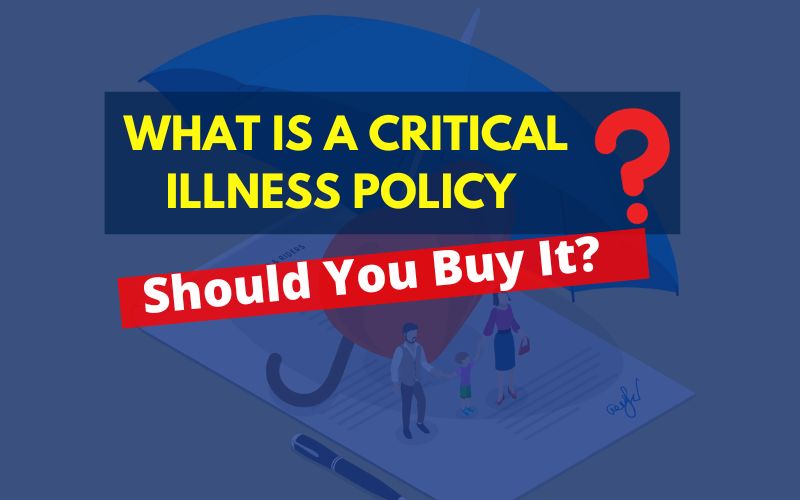Life is unpredictable, and while we all hope for the best, preparing for the worst is essential; this is where life insurance plays a vital role. Life insurance is a financial instrument that provides a safety net to your family and loved ones during your untimely death. While no one likes to think about their death, understanding why is life insurance important and why you need it can be crucial in securing your family’s financial stability.

Table of Contents
Why is Life Insurance Important – The Basics of Life Insurance Plan
Before getting into the importance of life insurance and why you should have it, it is essential to understand what life insurance is and how it works.
Life insurance is a contract between the policyholder (you) and an insurance company, where the insurance company promises to pay your beneficiaries money (the death benefit) in the event of the policyholder’s death in exchange for premium payments.
Life insurance typically falls into three main categories: (a)Term life insurance, (b)Life insurance with a saving component, and (c) Pension/ Annuity plans.
Term insurance covers a specific term, often 10, 20, or 30 years, while insurance with a savings component is further divided into – Whole Life Insurance, Endowment plan, Money-Back plan, and Unit-Linked Insurance Plans (ULIPs).
Whole life insurance covers your entire life. Popular LIC Jeevan Anand policy is an example of the Whole Life plan that provides life cover against death throughout the lifetime of the life policyholder and pays a lump sum at the end of the policy term in case of policyholder survival (combination of endowment and whole life plan).
Learn about the type of life insurance.
7 Factors to Consider Before Buying a Life Insurance
Now that you have a basic understanding of life insurance, let’s learn why it is important and why you need it.
1. Financial Protection for Your Family And Loved Ones
The most fundamental reason for having life insurance is to provide financial protection for your family and loved ones, especially if they depend on your income. If you were to pass away unexpectedly, your family members, such as your spouse, children, or other dependents, may face significant financial challenges. They would need to cover immediate expenses like medical bills, outstanding debts/ loan EMI, etc. Additionally, they may need ongoing financial support to replace their income and maintain their current standard of living.
Life insurance ensures that your family and loved ones are not left in a financially difficult position during an emotionally challenging time. The death benefit from your life insurance policy can cover these immediate and long-term financial needs, allowing your family to grieve without the added burden of financial uncertainty.
2. Loan and Financial Obligations
Many individuals have financial obligations that continue even after their passing. These include home loan payments, car loans, credit card debt, personal loans, and student loans. Without life insurance, these debts can significantly burden your family. Sometimes, creditors may even attempt to collect from your estate, potentially leaving your loved ones with fewer assets.
Life insurance can help cover these burdens by providing the funds necessary to pay off these debts. It ensures that your family won’t have to dip into their savings or assets to settle outstanding financial obligations. This becomes particularly crucial if you are the primary breadwinner in your family, as your family mainly relies on your income to meet these financial needs.
3. Income Replacement
Your income is a vital component of your family’s financial stability. It may cover daily living expenses, education costs for your children, and savings for future goals such as buying a home, a child’s higher education, or retirement. In the unfortunate event of your untimely death, your family would lose your income, potentially exposing them to financial difficulties.
Life insurance acts as a safety net by replacing your lost income. The death benefit can provide your family with the financial support they need to maintain their current lifestyle and work towards their future goals. This ensures that your loved ones don’t have to make significant sacrifices or face financial instability due to your absence.
4. Peace of Mind
Life is full of uncertainties, and no one can predict the future. While we all hope for long and healthy lives, accidents and unexpected illnesses can happen anytime. Having life insurance gives you peace of mind, knowing that you have taken steps to protect your family’s financial future.
This peace of mind can be especially valuable if you are your family’s primary breadwinner or if you have dependents who rely on your income. Knowing that they will be taken care of financially if something happens to you can bring a sense of security and relief.
5. Accessibility and Affordability
Life-term insurance is generally accessible and affordable for most individuals. It offers a cost-effective way to obtain substantial coverage. The premiums for term life insurance are usually lower than those for investment-based life insurance plans (Endowment, ULIP, Moneyback), making it an attractive option for individuals and young families on a budget. When you buy a term plan at a young age, you fix the premium for the entire term. Consider buying term insurance only to protect your family’s financial future.
💡Do not mix Insurance and Investment. Mixing them neither gives you a good life cover nor a good return.
6. Financial Responsibility and Long-Term Planning
Having life insurance shows your financial responsibility and long-term planning. It shows that you are taking proactive steps to protect your loved ones and their financial well-being, even in your absence. This sense of responsibility and planning can positively impact your family’s financial mindset and future planning.
7. Tax Savings
Lastly, buying life insurance can also help you in tax planning. The premium payment is covered under section 80C of the Income Tax Act. However, the primary purpose of buying life insurance should be life cover, not a tax savings option.
Conclusion
Life insurance is not a topic most people like to talk about, but it is important and necessary. It provides financial protection for your family and loved ones, helps settle loans and financial obligations, replaces lost income, and offers peace of mind in the face of life’s uncertainties.
Whether you are a young professional or a parent with dependents, life insurance can ensure your loved ones are taken care of.
Life insurance is not just about preparing for the worst; it’s about securing the best possible future for your family, even when you are no longer there to provide for them. So, while you may not like to think about it, life insurance is essential to responsible financial planning for your family’s future financial security.








